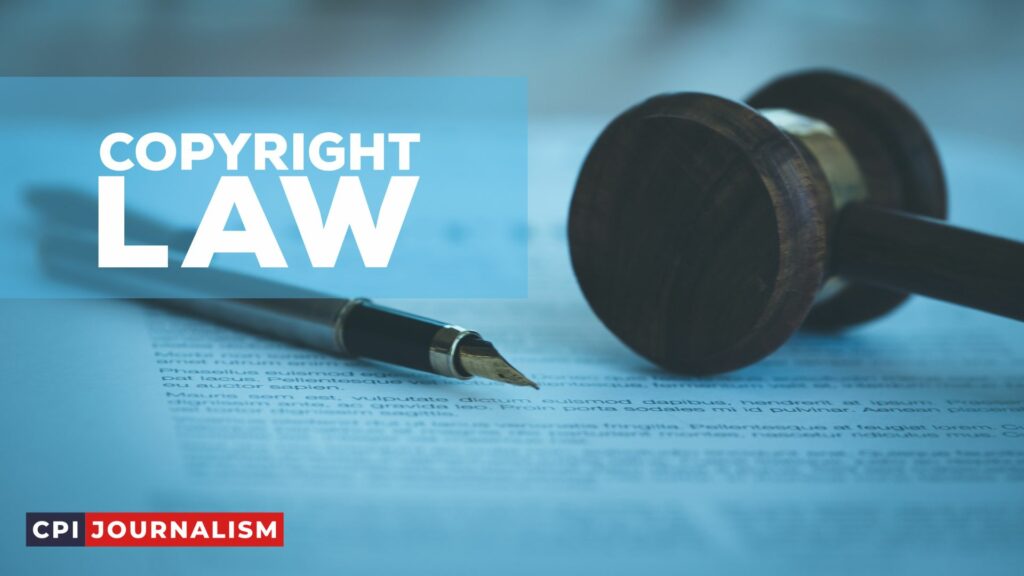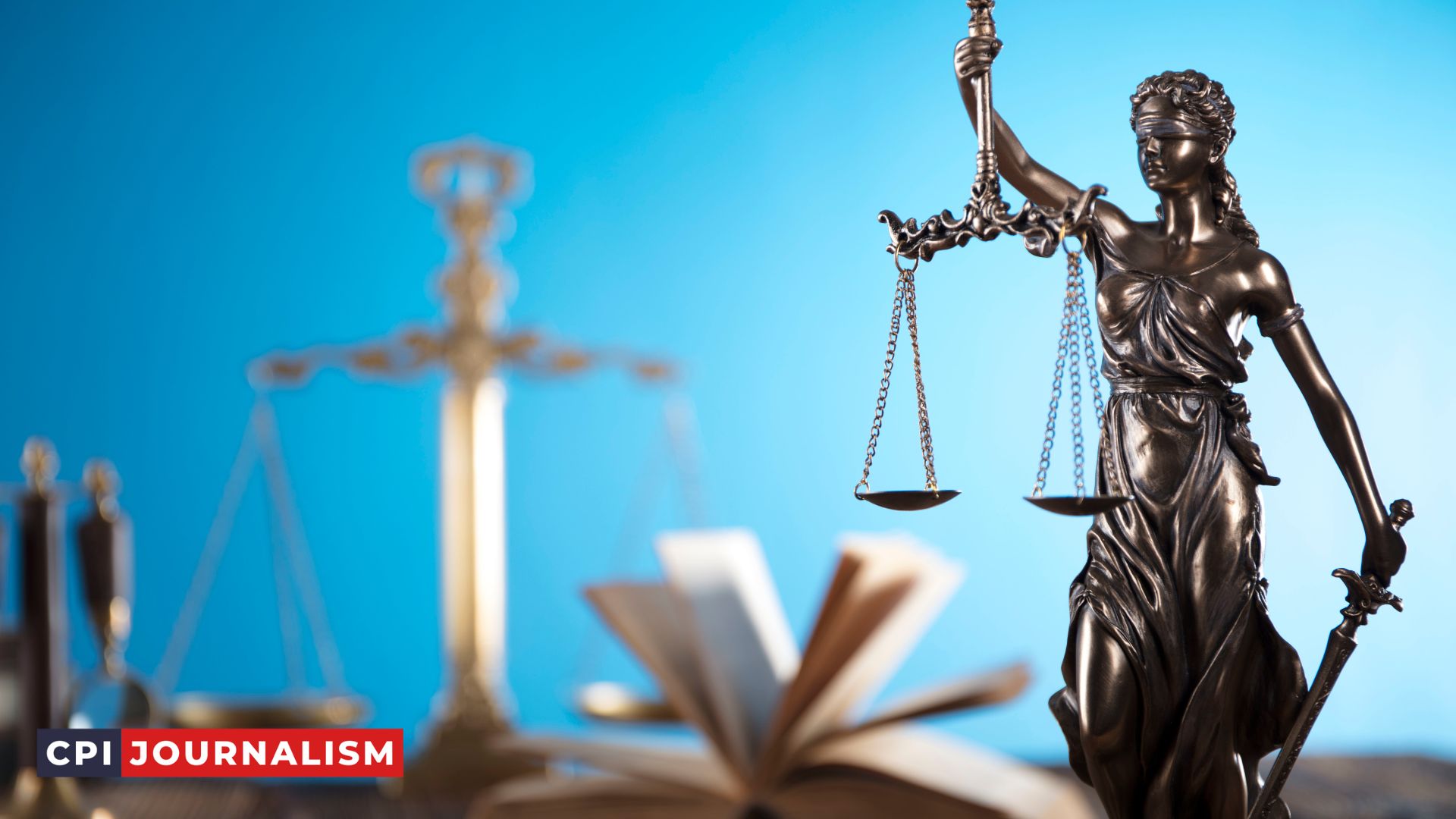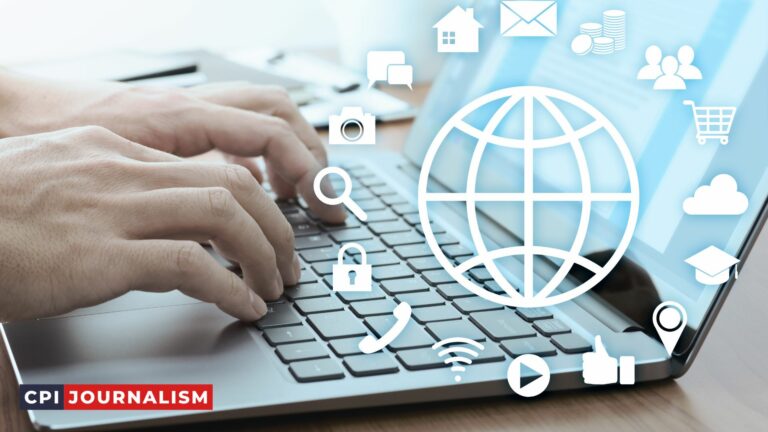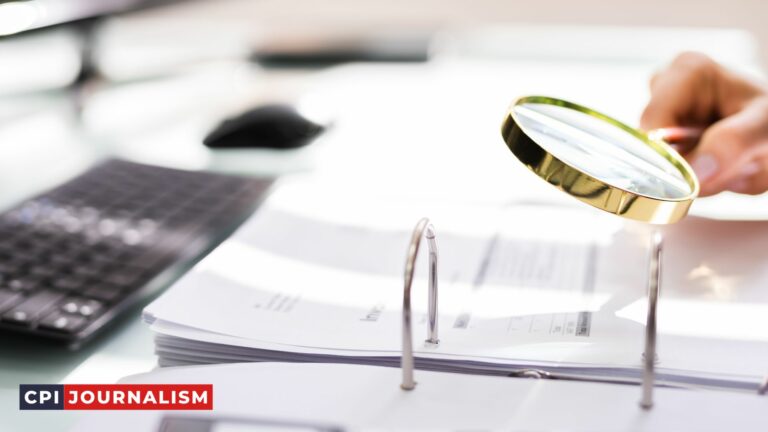What Are the Legal and Ethical Considerations of Investigating Journalism?
As an experienced journalist, I know firsthand the importance of understanding the legal and ethical considerations of investigative journalism.
As practitioners of this craft, it is our responsibility to maintain the highest standards of accuracy and ethical conduct.
In this article, I will discuss the various legal and ethical considerations of investigative journalism, and how they can help ensure that our stories are both accurate and responsible.
I hope that this article will help the next generation of journalists understand these critical issues and ensure that their work is both ethical and legally sound.
A. Overview of Legal and Ethical Considerations for Investigating Journalism
Investigative journalism is a powerful tool for uncovering wrongdoings in society, government and corporate entities, and for holding those responsible for such wrongdoings accountable.
However, the practice of investigative journalism is not without its risks and complexities, and journalists must be aware of both the legal and ethical considerations involved in each story they pursue in order to ensure the safety of the journalist and the accuracy of the story.
Legal considerations, such as the right to privacy and the right to a fair trial, are important considerations for investigative journalists.
In particular, the right to privacy can be a major issue when it comes to uncovering sensitive information, as journalists must be mindful of the implications of their actions on the privacy of their sources and those involved in the story.
Additionally, the right to a fair trial is an important consideration, as investigative journalists must be aware of the potential consequences of their reporting on a case before it goes to court.
In addition to legal considerations, ethical considerations are also important when it comes to investigative journalism. These include ensuring accuracy in the reporting, protecting the safety of the source, and respecting the confidentiality of the source.
Additionally, journalists must be mindful of the potential for bias in their reporting, and strive to maintain a sense of impartiality and fairness in their stories.
Overall, it is important for investigative journalists to be aware of both the legal and ethical considerations involved in their work.
By understanding and respecting the rights of those involved in the story, the journalist can ensure that their reporting is accurate and fair, and that their sources remain protected.
II. Legal Considerations
When it comes to investigating journalism, there are a number of legal considerations that must be taken into account. As a journalist, it is important to be aware of the laws and regulations that apply to your particular situation.
To begin with, it is important to understand the various types of laws that may be applicable to an investigation.
In some cases, a journalist may be subject to both federal and state laws. For example, there may be laws that protect a person’s right to privacy, or laws that prohibit disclosure of confidential information.
It is also important to consider any laws or regulations that may be applicable to the particular investigative project.
In addition, journalists must be aware of the various ethical considerations that apply to investigations. For example, journalists should consider the impact of their work on the communities they are reporting on.
Journalists should also consider the potential impact of their work on vulnerable populations, such as children or elderly people. Lastly, it is important for journalists to be aware of any potential conflicts of interest that may arise from their investigations.
In conclusion, it is important for journalists to be aware of the various legal and ethical considerations that may apply to an investigative project.
By understanding the applicable laws and regulations, and by considering the potential impact of their work, journalists can ensure that their investigations are conducted in a responsible and ethical manner.
A. Freedom Of The Press
Investigative journalism is one of the cornerstones of a free press and requires a clear understanding of the legal and ethical considerations that come with it.
Freedom of the press is a fundamental right guaranteed by the First Amendment of the U.S. Constitution, which states that “Congress shall make no law…abridging the freedom of speech, or of the press.” This constitutional right applies to all forms of media, including print, broadcast, and digital outlets.
In order to ensure the freedom of the press and maintain the integrity of investigative journalism, journalists must be mindful of the legal and ethical considerations when conducting their investigations.
First of all, journalists must recognize that certain information is protected by law. For example, certain types of information, such as personal medical records or information related to national security, are considered confidential and cannot be disclosed without permission from the source.
Additionally, journalists must be aware of the impact their investigations could have on their sources, and must take steps to protect their sources from any potential harm.
Journalists should also be aware of the ethical codes of conduct that govern their profession. These codes of conduct are designed to ensure that the public has access to accurate and unbiased information.
For example, journalists must strive to be accurate and impartial in their reporting, and must be truthful and transparent in their reporting. Additionally, journalists must respect the rights of their sources and not use deceptive or manipulative tactics to obtain information.
Finally, journalists must be aware of the laws that govern their profession. For example, journalists must adhere to libel and defamation laws, which are designed to protect individuals from false and damaging information.
Additionally, journalists must be aware of privacy laws, which are designed to protect individuals from the unauthorized disclosure of personal information.
In conclusion, investigative journalism is an important part of the democratic process and is essential to a free press. As such, journalists must be mindful of the legal and ethical considerations that come with this type of reporting.
By adhering to the laws and ethical codes of conduct that govern their profession, journalists can ensure that the public has access to accurate and unbiased information.
B. Right To Privacy
Right to privacy is an ethical and legal consideration that journalists must always keep in mind. To protect the privacy of individuals, journalists must obtain the consent of a person when collecting personal data or information.
In some cases, a journalist may have to seek permission from a court to obtain access to private records or documents. Additionally, journalists should take into account the potential consequences of publishing certain information.
They should use caution when publishing potentially damaging information about an individual, as this could lead to legal consequences.
Moreover, journalists should be aware of the privacy laws in their country before publishing any information. In some countries, journalists may be required to inform the person that their data is going to be published.
Additionally, journalists must protect the confidentiality of sources and should not reveal their identity without permission.
Finally, journalists should not use intrusive methods or techniques to obtain information. For example, journalists should not use hidden cameras or microphones to record conversations without permission.
Journalists should also take into account any local laws or regulations when investigating a story.
Ultimately, it is the responsibility of the journalist to respect the privacy of individuals when conducting investigations. Journalists must ensure that the information they obtain is used ethically and legally, and in a way that does not invade the privacy of others.
C. Defamation Laws
Defamation laws are an important legal and ethical consideration for investigative journalism. Defamation is defined as a false statement that is published or spoken to a third party and causes harm to the reputation of an individual or a group.
Defamation can take the form of libel (written statement) or slander (spoken statement).
In order for a statement to be considered defamatory, it must be a false and unprivileged statement that is made to a third party and causes harm to the reputation of an individual or group.
Journalists must take care to ensure that any statements they make in their reporting are true and accurate in order to avoid any potential defamation claims.
It is important to note that defamation laws vary from state to state and therefore journalists must be aware of the particular laws in the state they are reporting in.
To protect themselves, journalists should always seek the advice of a lawyer before publishing any potentially defamatory statements.
Additionally, journalists must also be aware of the protections afforded to them by the First Amendment of the United States Constitution.
The First Amendment protects freedom of speech and the press and provides certain protections for journalists who are engaging in investigative reporting. Journalists should be aware of their rights under the First Amendment and should always seek legal advice when in doubt.
In summary, defamation laws are an important legal and ethical consideration for investigative journalism and journalists should always ensure that any statements they make are true and accurate.
Additionally, journalists should also be aware of the protections afforded to them under the First Amendment and should seek legal advice when in doubt.
D. Copyright Laws
Copyright is an important legal consideration for investigative journalism. Copyright laws protect the authors of original works from having their work copied, distributed, or modified without their permission.
As an investigative journalist, it is important to be aware of copyright laws and to make sure that any materials you use in your reporting are properly attributed and credited.
When quoting or referencing a source, you should always provide a full citation, including the author’s name, title of the work, publication date, and any other pertinent information.

You should also obtain written permission from the copyright holder before using any copyrighted material.
In some cases, you may be able to use the material without obtaining permission if it falls under the fair use doctrine; however, it is important to carefully consider whether the material you are using meets the criteria for fair use before proceeding.
In addition, be aware of any applicable state or national laws related to copyright infringement. It is important to be aware that violating copyright laws can result in steep fines and legal action.
Therefore, you should always be sure to properly attribute any materials used in your reporting and obtain permission when necessary.
E. Access To Information Laws
Access to information laws are an important legal and ethical consideration for investigative journalism. These laws, also known as freedom of information laws, provide the public with the right to request access to government documents and records.
In the United States, the Freedom of Information Act (FOIA) provides the public with the right to access records and information held by federal agencies. Access to information laws vary from state to state, so it is important to be familiar with the laws in the jurisdiction where you are conducting an investigation.
In addition to these laws, journalists may be able to access information through open records laws and public records laws. These laws provide the public with the right to access information held by public entities.
Again, access to these records varies from state to state, so it is important to be familiar with the laws in the jurisdiction where you are conducting an investigation.
Finally, journalists may also be able to access information through the court system. Many court proceedings are open to the public, and court documents are often available for review.
It is important to note, however, that some court documents may be sealed and unavailable to the public.
Access to information laws play an important role in investigative journalism. It is important to be familiar with the laws in the jurisdiction where you are conducting an investigation in order to ensure that you are able to access the information you need to tell the story.
III. Ethical Considerations
Investigative journalism is a powerful tool for uncovering the truth and holding powerful entities accountable. However, it is important to remember that there are ethical considerations that must be taken into account when conducting an investigation.
First, journalists must strive to be honest, accurate, and transparent. This means accurately reporting facts and information, verifying sources, and avoiding sensationalism. It is also important to ensure that all information gathered is used responsibly and ethically.
Second, journalists must respect the privacy of those they are investigating. This means refraining from using confidential or privileged information without permission and seeking to understand the potential implications of the investigation for those involved.
Third, journalists should be aware of potential conflicts of interest and refrain from using their position to gain an advantage. This could include using inside information to gain access to exclusive stories or using confidential information to gain an advantage over competitors.
Finally, journalists should be aware of the potential legal implications of their reporting. Laws concerning defamation, privacy, and copyright may apply, so journalists should ensure that they are familiar with the relevant laws.
By adhering to these ethical considerations, investigative journalists can ensure that their work is meaningful and ethically sound.
A. Accuracy and Verification
Accuracy and verification are essential components of any investigative journalism. It is important to ensure that the facts and information gathered are accurate and reliable before proceeding with publishing the story.
As a journalist, you are responsible for verifying information and fact-checking sources to ensure the accuracy of the story.
In order to ensure accuracy and verification, you must use a variety of sources and multiple methods to confirm information. This includes interviewing witnesses and experts, utilizing public records, and researching relevant documents.
Additionally, you must always remain impartial and unbiased when conducting research and gathering information for the story.
You must also be mindful of the legal and ethical considerations when conducting investigative journalism. It is important to follow applicable laws and regulations and respect the privacy of individuals and organizations.
You must also ensure that the story does not violate any copyright laws, libel laws, or other applicable laws.
The accuracy and verification of information is also important from an ethical standpoint. As a journalist, you must strive to report the truth and the facts. This means you must report stories free of personal bias or opinion.
Additionally, it is important to avoid sensationalizing stories or manipulating facts in order to make a story more interesting or attractive to readers.
Ultimately, accuracy and verification are essential components of any investigative journalism. As a journalist, it is your responsibility to ensure that the facts and information gathered are accurate and reliable before proceeding with publishing the story.
B. Respect For Sources
As an investigative journalist, it is of paramount importance to respect the sources of information that you are working with. Not only is this a matter of ethical consideration, but it is also a legal requirement.
The reputation of a journalist is built upon the trustworthiness of their sources, and any failure to respect the privacy or wishes of those sources can result in severe legal repercussions.
Therefore, it is essential to always act with integrity when dealing with sources. Be transparent about the purpose of your inquiries, and ensure that they understand the implications of any information they provide to you.
Take care to protect your sources’ identities and any confidential information they provide, and always respect any requests they make in regards to the use of their information.
It is also important to be mindful of the accuracy of the information you receive. As an investigative journalist, you are taking on the responsibility of disseminating accurate information.
It is not enough to simply print or broadcast the stories you receive. Instead, you must verify them and confirm their accuracy before going to press.
Finally, it is essential to be mindful of the impact your reporting has on the lives of your sources. As an investigative journalist, you are tasked with the responsibility of uncovering the truth.
However, in doing so, you must always be cognizant of the potential implications of your reporting. Respect the wishes of your sources, and ensure their wellbeing is not compromised in any way due to your investigations.
C. Confidentiality
Confidentiality is one of the most important legal and ethical considerations of investigative journalism. Confidentiality is the obligation of a journalist to not disclose the identity of a source or the contents of the information provided by the source.
This is an important concept in journalism because it allows journalists to build trust with their sources and encourages people to come forward with important information.
Journalists should always strive to protect the identity of their sources to the best of their ability. This means that journalists should not reveal the identity of a source without their permission or consent.
Additionally, journalists should take steps to ensure that information provided by a source cannot be traced back to them. This can be done by using encrypted communication methods, such as Signal or ProtonMail.

It is also important for journalists to understand the limits of confidentiality. There are some cases in which a journalist may be legally obligated to reveal the identity of a source or the contents of the information provided.
For example, if a journalist is subpoenaed to testify in a court of law, they may be required to reveal the identity of a source or the contents of the information provided. In such cases, it is important for journalists to consult with an attorney to understand their rights and obligations.
By understanding and respecting the limits of confidentiality, journalists can ensure that they are not only protecting the identities of their sources, but also upholding the highest ethical standards of investigative journalism.
D. Conflict of Interest
When engaging in investigative journalism, it is important to be aware of potential conflicts of interest. A conflict of interest occurs when a journalist has a personal stake in the story they are covering, either financially or emotionally.
This can create a situation where the journalist’s personal interests may cloud their judgment and lead to biased reporting.
It is important to be aware of any potential conflicts and to avoid any situations that could lead to a conflict of interest. As an example, if a journalist has a friend or family member who is involved in the story they are covering, they should avoid reporting on the story or take extra care to ensure their reporting is impartial.
In addition, journalists should be aware of any potential financial conflicts of interest. If a journalist is receiving payment from any of the parties involved in the story, they should disclose this information to their readers.
This helps ensure that readers are aware of the potential bias and can make an informed decision when evaluating the story.
Finally, journalists should take care to avoid any other potential conflicts of interest. This includes taking extra care to avoid any personal relationships or friendships that could lead to bias in the reporting.
By being aware of potential conflicts of interest and taking extra care to avoid them, investigative journalists can ensure that their reporting is impartial and trustworthy.
E. Transparency
Investigating journalism involves a high level of ethical and legal considerations. It is essential that journalists adhere to these standards in order to remain transparent and accountable to their audience.
Transparency is a key consideration in any investigative journalism project. It is important that journalists provide their audience with full insight into their sources, methods, and any potential conflicts of interest that may exist.
Journalists should also make every effort to avoid any sense of bias or favoritism in their reporting. Any sources used should be clearly identified and appropriately credited.
Furthermore, journalists should provide their audience with an opportunity to evaluate their work and provide feedback, allowing for an open and honest dialogue.
It is also important to ensure that all activities related to investigative journalism are conducted with the utmost respect for the privacy of those involved.
When dealing with sensitive or confidential information, journalists should take extra precautions to protect the identities of those involved. This includes taking steps such as anonymizing sources and double-checking facts before publishing any information.
Finally, journalists should be willing to be held accountable for their work. They should be open to criticism and willing to make corrections when necessary. By upholding these standards, journalists can ensure that their work is conducted in an ethical and responsible manner.
IV. Conclusion
Investigative journalism is a powerful tool for uncovering hidden facts, bringing wrongdoers to justice, and shaping public opinion.
However, it is critical for journalists to understand the legal and ethical considerations of this work to ensure that their efforts are conducted in a responsible and respectful manner.
The legal considerations of investigative journalism include understanding defamation laws, copyright laws, privacy laws, and freedom of information laws.
Ethical considerations involve adhering to the principles of truth and accuracy, fairness, respect for privacy, minimizing harm, and maintaining independence.
By understanding and adhering to these legal and ethical considerations, journalists can ensure that their investigations are conducted in a responsible and respectful manner.
A. Summary of Legal and Ethical Considerations
Investigative journalism is a powerful tool of news media that can often reveal injustices, corruption and other nefarious activities. It is important, however, to consider the legal and ethical implications when undertaking such investigations.
The primary legal considerations include the right to privacy and protection of sources. Journalists must be aware of the laws of their country, state and municipality that may apply to their investigation.
For example, privacy laws may limit the ability to record someone without their permission or to access confidential documents. In some jurisdictions, journalists may also be required to reveal their sources when compelled by a court of law.
In addition to the legal considerations, journalists must also be aware of the ethical implications of their investigations. This includes the need to be honest and transparent in their reporting and to ensure that their sources are protected from harm.
Journalists must also strive to ensure that their reports are accurate and fair, without distorting or manipulating facts.
Finally, journalists must also consider their own safety while conducting investigations. Reporters should be aware of the potential risks they may face and be prepared to protect themselves and their sources.
B. Importance Of Adhering To Legal and Ethical Standards
As an investigative journalist, it is of utmost importance to adhere to legal and ethical standards. Not only does adhering to these standards protect you from potential legal and ethical issues, but it also helps to ensure that your work is accurate and trustworthy.
By following the law, you can avoid potential lawsuits or criminal charges that could be brought against you if you fail to adhere to the applicable laws.
In addition, following ethical standards helps to protect the public and your sources from potential harm.
Ethical standards help to provide assurance that your work is accurate and trustworthy, and can help to protect your reputation as an investigative journalist.
It is also important to recognize that investigative journalism is not a single-person endeavor. It requires coordination between multiple parties, including editors, sources, and researchers.
As such, it is important to ensure that all parties involved in the investigative process adhere to legal and ethical standards. This is particularly true when it comes to protecting the anonymity of sources, as well as protecting the privacy of individuals who are the subject of the investigation.
Finally, adhering to legal and ethical standards is essential in order to ensure the accuracy and reliability of your work.
By following the law and ethical standards, you can ensure that your work is accurate, trustworthy, and fair to those involved. This is essential in order to maintain the integrity of your work.
V. Resources
As an investigative journalist, it is important to have access to reliable resources in order to ensure that you are following the appropriate legal and ethical considerations. In this section, we will provide some helpful resources that can help you in your research:
1. The Freedom of Information Act (FOIA): This federal law allows individuals to request access to records from federal agencies. FOIA is often used by journalists to access information that would otherwise be unavailable.
2. The Society for Professional Journalists (SPJ): The SPJ is a nonprofit organization that works to promote the ethical practice of journalism. They provide a code of ethics for journalists that outlines the ethical considerations of investigating journalism.
3. The Reporters Committee for Freedom of the Press (RCFP): The RCFP is a nonprofit organization that works to protect the rights of journalists. They provide legal resources and advice, as well as support for journalists in legal cases.
4. The National Freedom of Information Coalition (NFOIC): The NFOIC is a nonprofit organization that works to promote access to government information. They provide resources and support for journalists seeking access to public records.
5. The National Institute for Computer-Assisted Reporting (NICAR): NICAR is a nonprofit organization that works to provide resources and support for journalists using computer-assisted reporting. They provide a variety of resources, including training and data sets.
These are just a few of the resources available to investigative journalists. It is important to familiarize yourself with the different types of resources available so that you can make informed decisions about your research.
Additionally, consult your local library for more information on legal and ethical considerations of investigative journalism.
A. Links To Relevant Laws And Regulations
Investigating journalism is a valuable tool for uncovering the truth and informing the public, but it is important to understand the legal and ethical considerations of this type of reporting. Below are links to relevant laws and regulations that govern the practice of investigative journalism in the United States.
The First Amendment of the U.S. Constitution guarantees freedom of the press and the right to seek and publish information. This is a critical tool for investigative journalists, as it allows them to pursue stories and publish information without fear of censure or legal action.
The Privacy Act of 1974 protects the privacy of individuals from federal government agencies. This is important for investigative journalists, as it prevents government agencies from releasing private information without the consent of the individual.
The Freedom of Information Act (FOIA) allows the public to request documents from federal government agencies. This is an important tool for investigative journalists, as it enables them to access information that would otherwise be unavailable.
The Defamation Act of 1964 protects individuals from being falsely accused of a crime or from having their character defamed. This is an important consideration for investigative journalists, as it is important to ensure that information is accurate and that no one is falsely accused.
The Copyright Act of 1976 protects authors from having their work copied or reused without their permission. This is an important tool for investigative journalists, as it prevents others from stealing their work and taking credit for it.
These are just a few of the legal and ethical considerations that investigative journalists need to be aware of. It is important to research and understand the relevant laws and regulations before embarking on an investigative journalism project.
B. Links To Ethical Guidelines For Journalists
It is of utmost importance for journalists to adhere to ethical guidelines when conducting investigative journalism.
The following are some of the most important ethical guidelines for journalists to consider:
1. Respect for Truth: Journalists should always strive to be as accurate and truthful as possible in their reporting. They should also strive to be impartial and avoid any bias or preconceived notions of a story.
2. Respect for Rights: Journalists should always be mindful of their subjects’ rights, including their right to privacy. They should also respect the right to freedom of expression and never deliberately misrepresent or distort the facts.
3. Respect for Confidentiality: Journalists should always respect the confidentiality of their sources and not reveal any information that may harm them. They should also be aware of any legal restrictions around the disclosure of confidential information.
4. Respect for Privacy: Journalists should always respect the privacy of their subjects, and be mindful of any potential harm that could come to them as a result of their reporting. They should also consider the impact their stories may have on their subjects’ lives.
5. Respect for Accuracy: Journalists should always strive for accuracy in their reporting, and be willing to correct any mistakes that are made. They should also be aware of any legal implications of their reporting and take all necessary steps to ensure accuracy.
These are just a few of the ethical guidelines that journalists should consider when conducting investigative journalism. For more information on ethical guidelines for journalists, please refer to the following resources:
• The Society of Professional Journalists: https://www.spj.org/ethicscode.asp
• The International Federation of Journalists: https://www.ifj.org/our-work/ethical-guidelines/
• The Committee to Protect Journalists: https://cpj.org/reports/ethics/index.php
By following these ethical guidelines, journalists can ensure that their investigative journalism is conducted in a way that respects the truth, the rights of their subjects, and the privacy of all involved.
C. Examples of Investigative Journalism
The best way to understand the legal and ethical considerations of investigative journalism is to review examples of investigative journalism.
Here are some of the most notable examples of investigative journalism in recent years:
1. The Panama Papers: The Panama Papers were a massive leak of financial documents which revealed the offshore investments of many prominent people and corporations.
The leak was investigated by a team of journalists around the world, who uncovered a massive web of offshore accounts used to evade taxes and launder money.
2. The Edward Snowden Leaks: In 2013, Edward Snowden leaked classified documents that revealed the extent of the US government’s surveillance practices.
The documents exposed the level of data collection and monitoring of civilians by the US government, resulting in a major debate about government surveillance and privacy rights.
3. The Watergate Scandal: In 1972, two Washington Post reporters uncovered a major political scandal involving the Nixon administration. The investigation revealed a massive cover-up of criminal activity by the White House, leading to the resignation of President Nixon and the indictment of dozens of officials.
4. The Enron Scandal: In 2001, Enron, the energy giant, was revealed to have been engaged in massive fraud and embezzlement. The fraud was uncovered by a team of investigative journalists, leading to the indictment of top executives and the collapse of the company.
These examples demonstrate the power of investigative journalism and its ability to uncover wrongdoing and hold powerful actors accountable.
Understanding the legal and ethical considerations of investigative journalism is essential for any journalist embarking on an investigative project.







